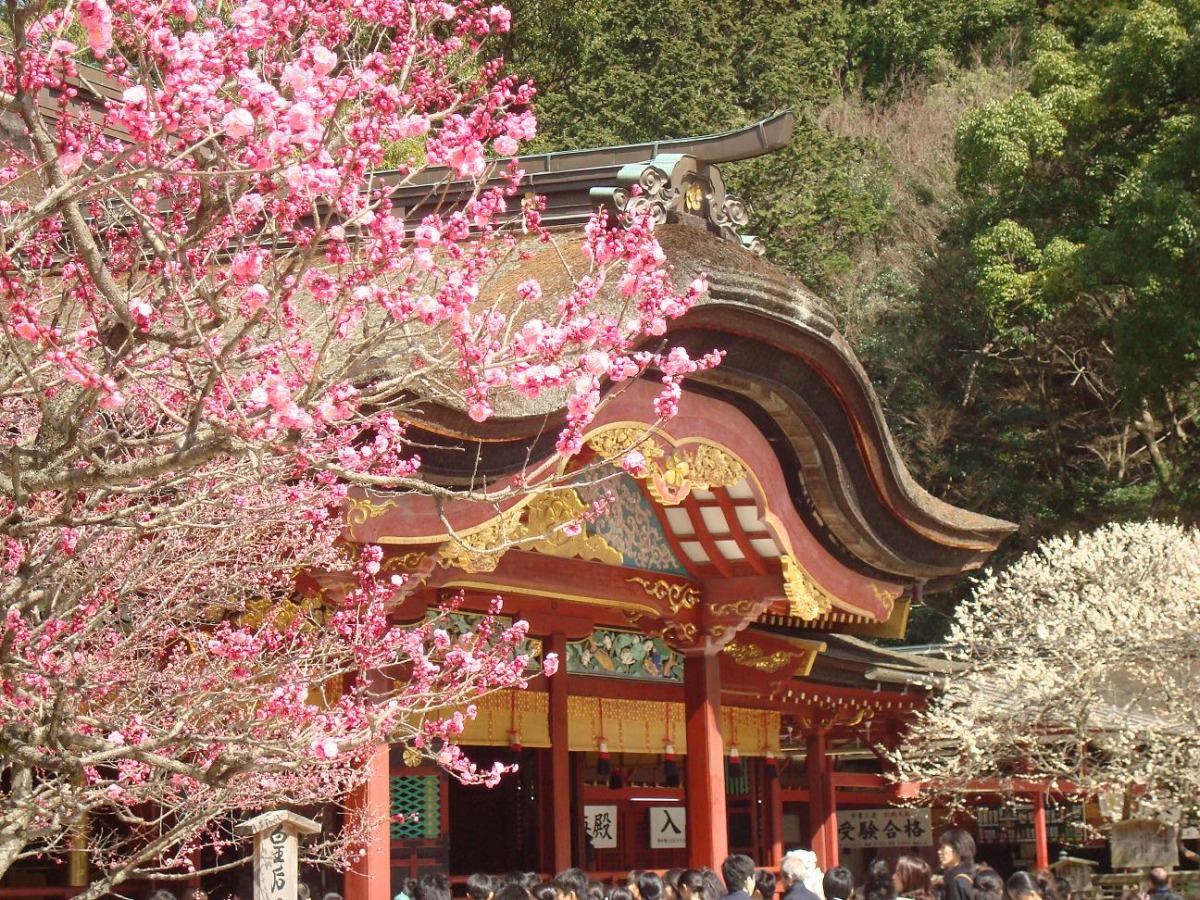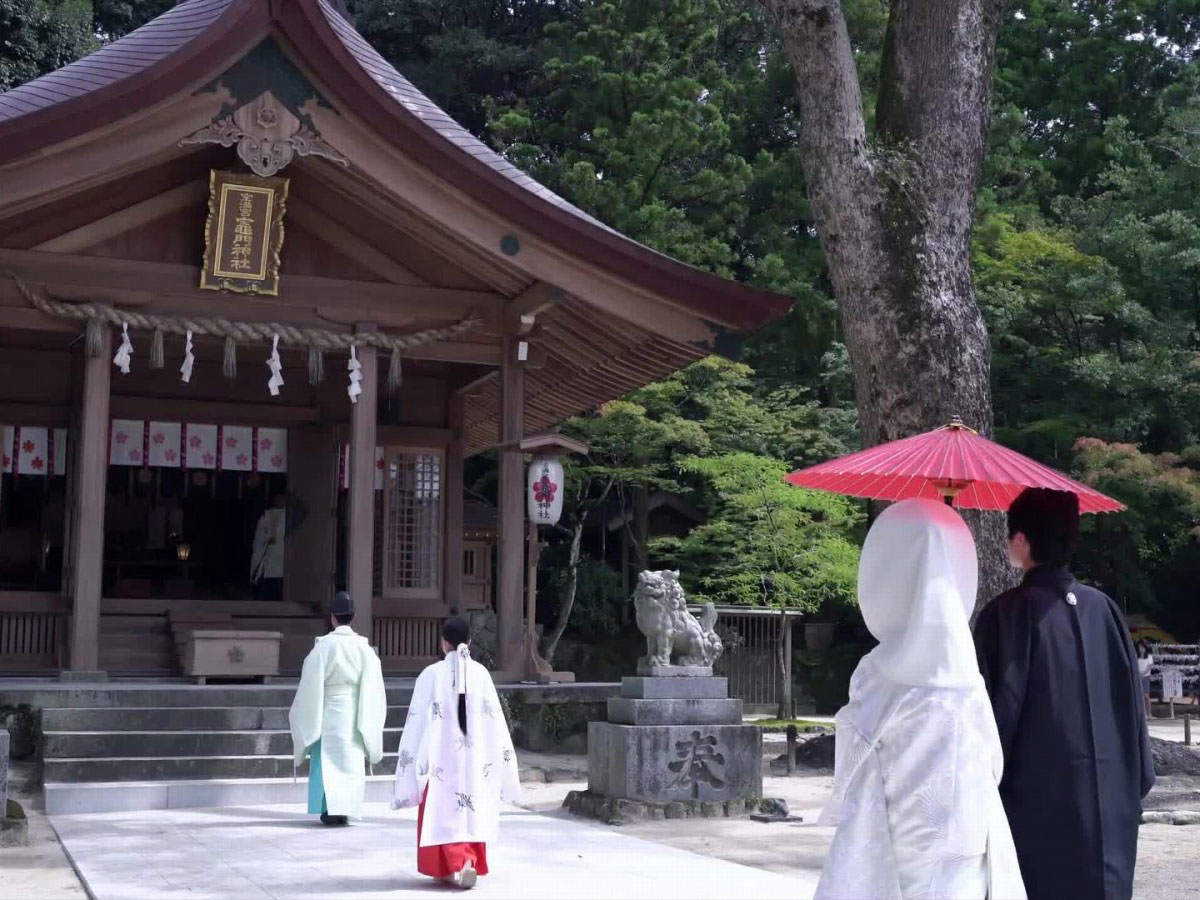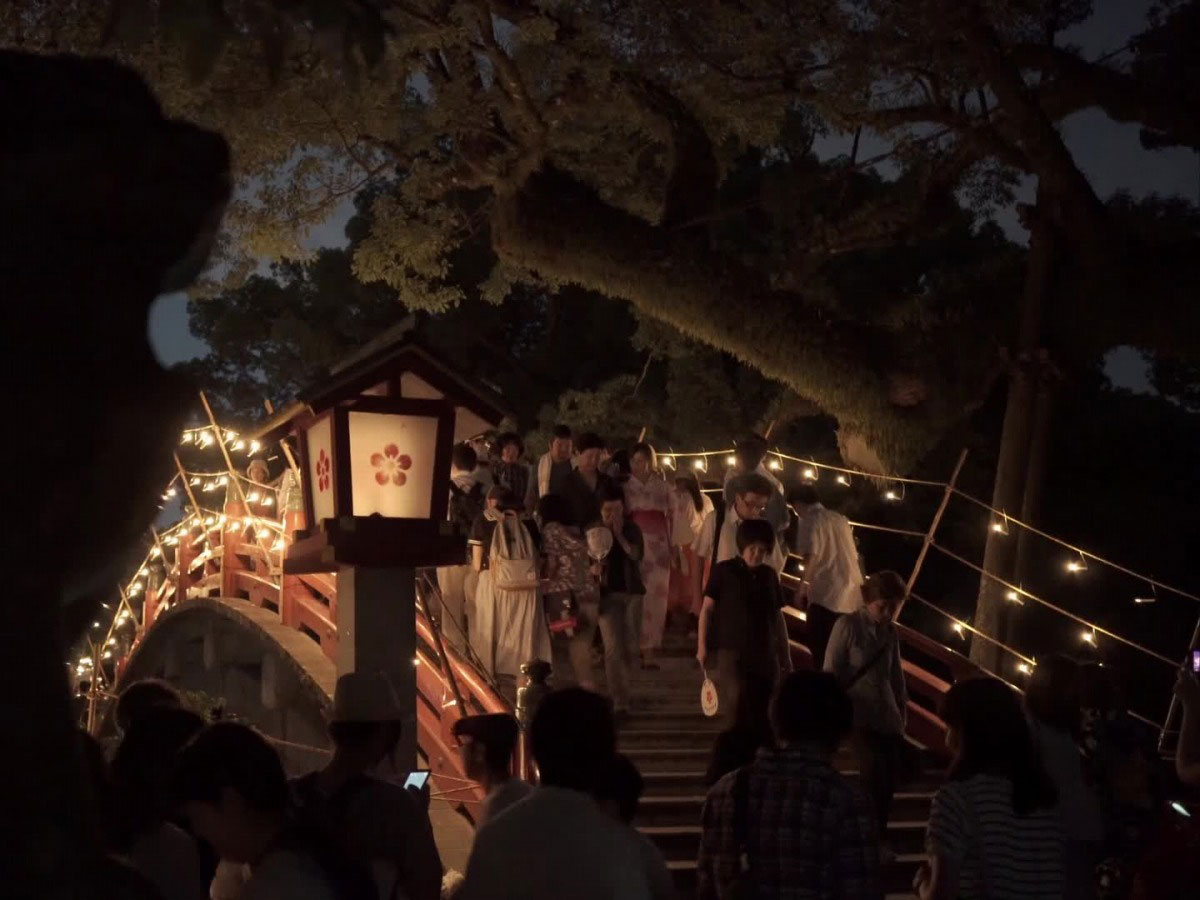Dazaifu Tenmangu
The shrine was built here upon the death of Sugawara Michizane, known as the God of literature and once a high-ranking government official who was exiled to Dazaifu. The main shrine was erected over his grave, with the current main shrine (an important cultural property) rebuilt in 1591. The shrine is host to camphor and plum trees, as well as Japanese iris that bloom and offer fragrances for every season. There are many Shinto rituals and festivals during the year, such as the Usogae telling of lies and Oni Sube fire festival in the New Year, Kyokusui no en poetry in the spring, and the Jinkoushiki god procession in the fall.
*The main shrine of Dazaifu Tenmangu is currently undergoing the first renovations in 124 years, so a temporary shrine has been erected.
*The main shrine of Dazaifu Tenmangu is currently undergoing the first renovations in 124 years, so a temporary shrine has been erected.
View scenic routes that include this spot
STUDY & ART
More Information about Dazaifu Tenmangu
Street address
- 4-7-1 Saifu, Dazaifu City
Access
- 10 minutes on foot from Nishitetsu Omuta Dazaifu Station
Opening Hours
- Varies by season
http://www.dazaifutenmangu.or.jp/sanpai
Closed
Best season
- Feb.
Point
- Sugawara Michizane (Tenjin) is enshrined as the deity of the shrine and is venerated as the god of scholarship and the god of literature.
Furthermore, Dazaifu Tenmangu Shrine has become deeply connected to literature, entertainment, and art, through the dedication of waka, renga, kabuki, and painting.
update: Jan.21.2025

Spots around
-

Munakata Taisha Shrine
-

Fukuoka Airport
-

Tanga Market
-

Komyozenji Temple
-

Fukuoka Art Museum
-

Kokura Castle
-

Yame Dento Kogeikan (Yame Traditional Crafts Museum)
-

Harazuru Hot Spring
-

Michi no Eki Munakata Roadside Station
-

Kitakyushu Airport
-

Nagahama Fish Market
-

THE RAIL KITCHEN CHIKUGO
-

Kyushu Olle
-

Kyushu National Museum
-

Yatai (Food Stalls)
-

Kitakyushu Manga Museum
-

Kaho Gekijo Kabuki Theater
-

MORI NO HANARE
-

Ohori Park
-

Hiraodai (Hiraodai Countryside Park)
-

Yame central tea plantation
-

Acros Fukuoka
-

Yabeya Konomi Honke
-

Hiraodai (Senbutsu Cave)
-

Unagi no Seiromushi
-

Kushida Shrine
-

Hakatamachiya Furusatokan
-

Nakasu
-

Tobata Gion Oyamagasa Festival
-

Port of Moji
Mekari area -

Kyoho Winery
-

Yanagawa river cruise
-

Tachibana Gardens
National Site of Scenic Beauty









 About FUKUOKA
About FUKUOKA 



















